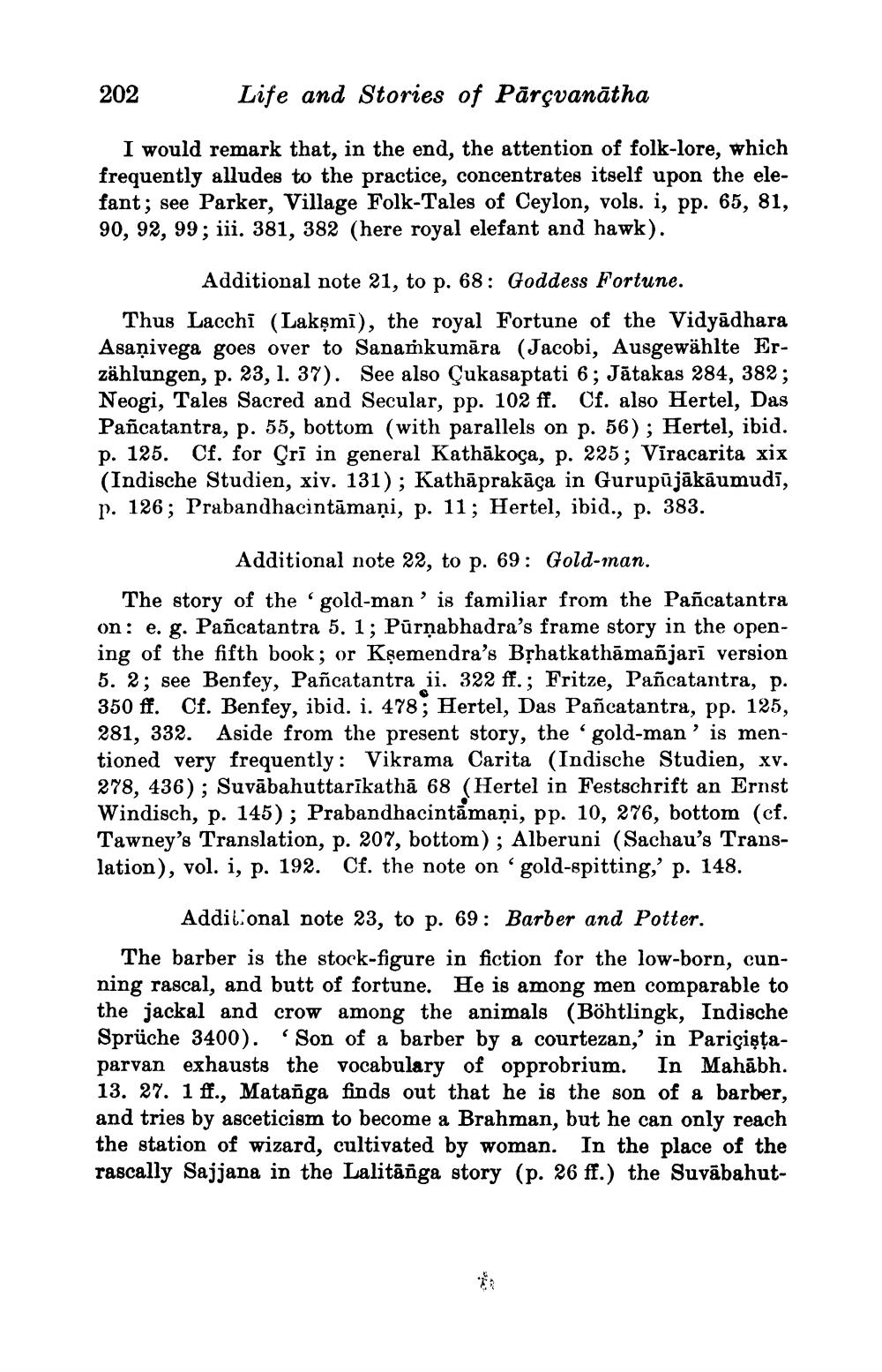________________
202
Life and Stories of Pārçvanātha
I would remark that, in the end, the attention of folk-lore, which frequently alludes to the practice, concentrates itself upon the elefant; see Parker, Village Folk-Tales of Ceylon, vols. i, pp. 65, 81, 90, 92, 99; iii. 381, 382 (here royal elefant and hawk).
Additional note 21, to p. 68: Goddess Fortune. Thus Lacchi (Lakşmī), the royal Fortune of the Vidyādhara Asaņivega goes over to Sanamkumāra (Jacobi, Ausgewählte Erzählungen, p. 23, 1. 37). See also Çukasaptati 6; Jātakas 284, 382; Neogi, Tales Sacred and Secular, pp. 102 ff. Cf. also Hertel, Das Pañcatantra, p. 55, bottom (with parallels on p. 56); Hertel, ibid. p. 125. Cf. for Crī in general Kathākoça, p. 225; Viracarita xix (Indische Studien, xiv. 131); Kathāprakāça in Gurupūjākāumudi, p. 126; Prabandhacintīmaņi, p. 11; Hertel, ibid., p. 383.
Additional note 22, to p. 69: Gold-man. The story of the gold-man' is familiar from the Pañcatantra on: e. g. Pañcatantra 5.1; Pūrnabhadra's frame story in the opening of the fifth book; or Kşemendra's Bșhatkathāmañjarī version 5. 2; see Benfey, Pañcatantra ii. 322 ff.; Fritze, Pañcatantra, p. 350 ff. Cf. Benfey, ibid. i. 478; Hertel, Das Pañcatantra, pp. 125, 281, 332. Aside from the present story, the 'gold-man' is mentioned very frequently: Vikrama Carita (Indische Studien, xv. 278, 436); Suvābahuttarīkathā 68 (Hertel in Festschrift an Ernst Windisch, p. 145); Prabandhacintămaņi, pp. 10, 276, bottom (cf. Tawney's Translation, p. 207, bottom); Alberuni (Sachau's Tra lation), vol. i, p. 192. Cf. the note on 'gold-spitting,' p. 148.
Additional note 23, to p. 69: Barber and Potter. The barber is the stock-figure in fiction for the low-born, cunning rascal, and butt of fortune. He is among men comparable to the jackal and crow among the animals (Böhtlingk, Indische Sprüche 3400). 'Son of a barber by a courtezan,' in Pariçiştaparvan exhausts the vocabulary of opprobrium. In Mahābh. 13. 27. 1 ff., Matanga finds out that he is the son of a barber, and tries by asceticism to become a Brahman, but he can only reach the station of wizard, cultivated by woman. In the place of the rascally Sajjana in the Lalitāñga story (p. 26 ff.) the Suvābahut




